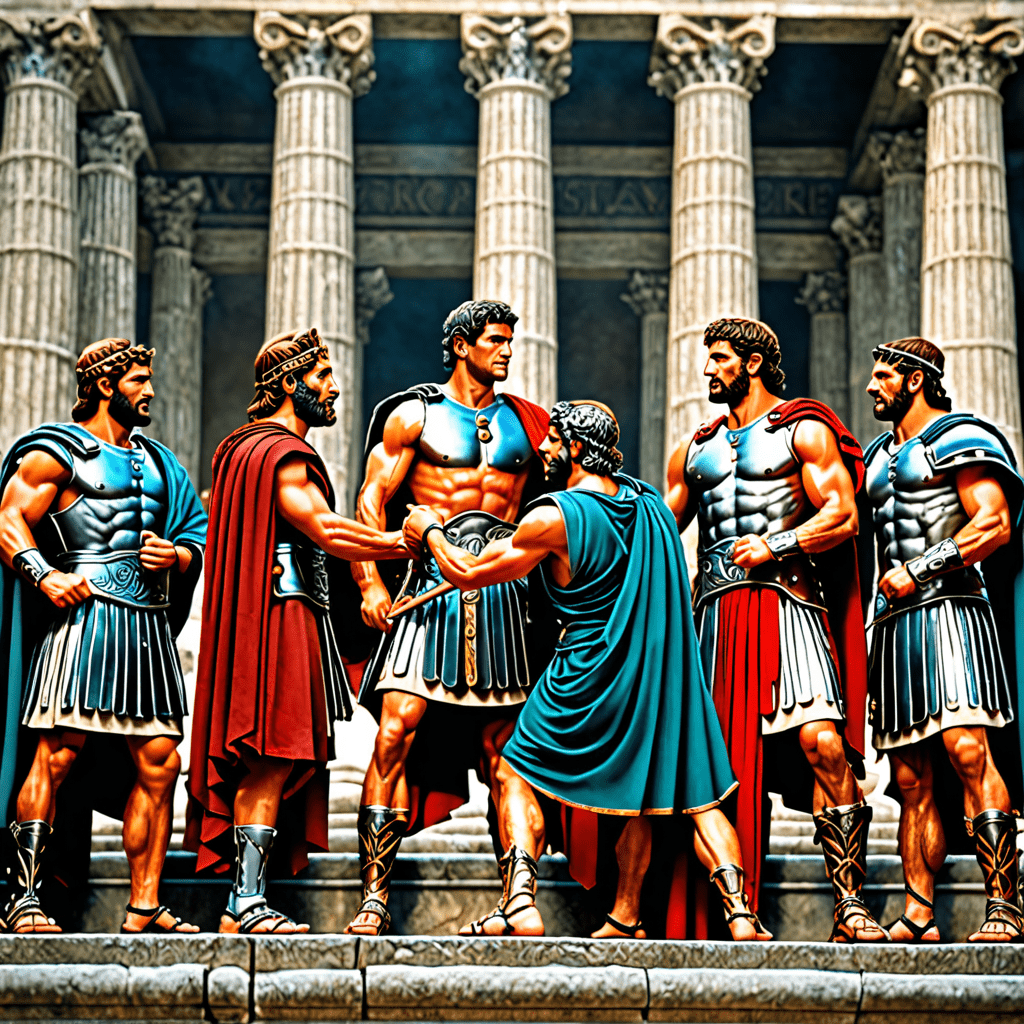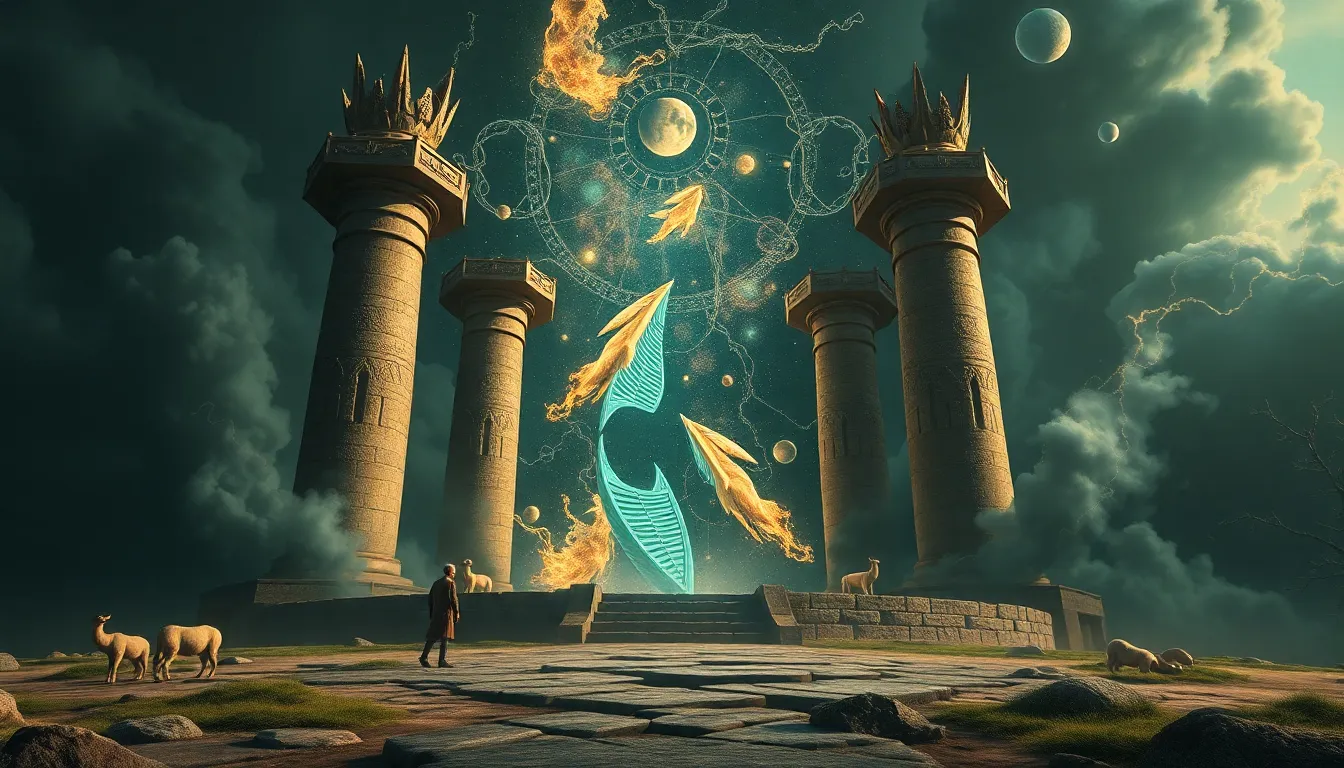The Mythological Origins of Roman Brotherhood and Camaraderie
Brotherhood and camaraderie held significant importance in ancient Roman society, deeply rooted in the mythological tales of the time.
1. Origins of Brotherhood in Roman Mythology
In Roman mythology, one of the most iconic tales illustrating the essence of brotherhood is that of Romulus and Remus. According to legend, these twin brothers were abandoned as infants and raised by a she-wolf. They went on to found the city of Rome, but their bond was tested when a dispute arose over who would rule. This myth highlights the themes of loyalty, conflict, and the enduring bond between siblings.
2. Camaraderie Among Roman Soldiers
Campos Romanus, or the Roman military encampment, played a pivotal role in fostering camaraderie among soldiers. Through shared battles, hardships, and victories, Roman soldiers developed a strong sense of fellowship. This camaraderie was essential for the cohesion and efficiency of the Roman legions.
3. Brotherhood in Roman Fraternities and Societies
In addition to familial bonds and military camaraderie, Roman society also valued brotherhood in the form of fraternities and collegia. These social groups, comprising individuals with common interests or professions, provided support, solidarity, and a sense of belonging. Members of these groups often displayed loyalty and mutual assistance, embodying the spirit of brotherhood.
4. Legacy of Roman Brotherhood
The mythological origins of Roman brotherhood and camaraderie continue to echo through history. The ideals of loyalty, fellowship, and mutual support exemplified in Roman myths and societal structures have left a lasting impact on Western culture. Even today, the value of brotherhood, whether biological, social, or military, remains a revered and cherished aspect of human relationships.
FAQ
What is the significance of mythological origins in Roman brotherhood and camaraderie?
Mythological origins play a vital role in shaping the values, beliefs, and behaviors that define Roman brotherhood and camaraderie. These myths often serve as moral lessons and inspirations for unity, loyalty, and mutual support among individuals and communities.
Which mythological figures exemplify brotherhood and camaraderie in Roman mythology?
Figures such as Romulus and Remus, the legendary founders of Rome, symbolize the essence of brotherhood through their shared struggles and eventual partnership in building a prosperous city. Additionally, stories of the gods Jupiter and Mars showcase camaraderie in divine forms.
How do mythological tales influence the Roman concept of brotherhood?
Mythological tales of heroic bonds, sacrificial acts, and collective victories serve as archetypes that inspire Romans to prioritize unity, fraternity, and solidarity within their social, political, and military structures. These stories reinforce the importance of mutual support and loyalty among brothers in arms.
What lessons can we learn from Roman myths about brotherhood and camaraderie?
Roman myths offer timeless teachings on the power of cooperation, trust, and collaboration in fostering strong relationships and achieving common goals. They highlight the strength that emerges when individuals unite under



